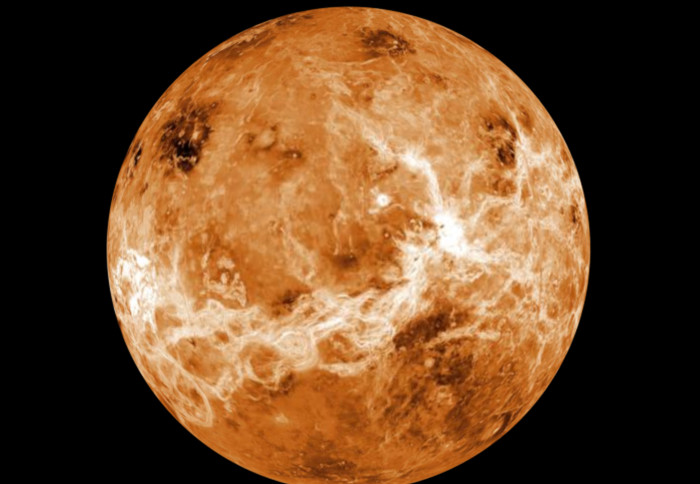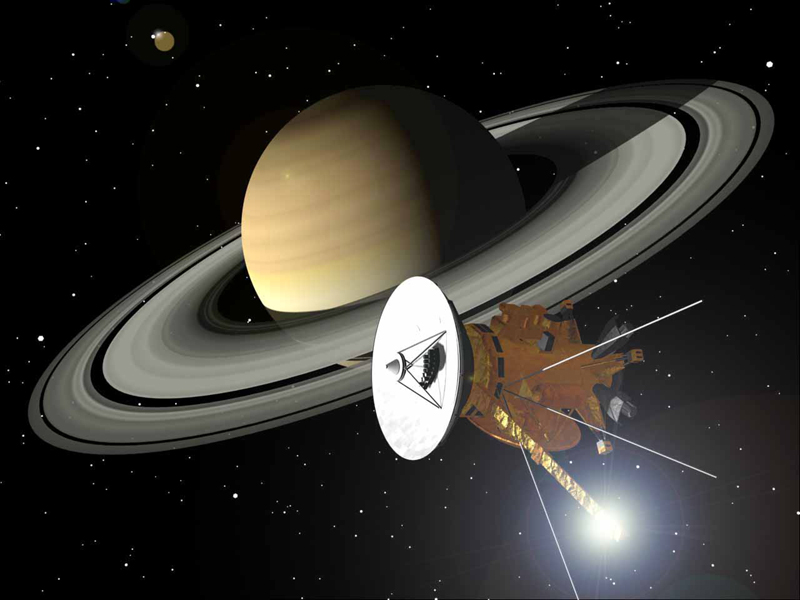Top Astronomy Stories 2012

What were 2012's big astronomy stories? Here is my choice for the top ten.
1. Transit of Venus
The next time Venus crosses the face of the Sun will be in 2117. On average, two transits of Venus occur about every 120 years and only seven such transits have ever been observed. Eighteenth century astronomers used Venus transit measurements to calculate the size of the Solar System. Modern astronomers look for transits in front of other stars to find exoplanets and learn about their atmospheres, so they eagerly studied this nearby transit.
2. Curiosity's landing on Mars
Could NASA safely land a one-ton robotic geochemistry lab in Gale crater on Mars? Their plan was ingenious, but precarious. The "seven minutes of terror" of the landing would be done in stages, ending with a sky crane to lower Curiosity onto the ground. Millions of people watched the historic landing and cheered along with the Mars team when engineer Al Chen announced, "Touchdown confirmed. We're safe on Mars."
3. Neil Armstrong (1930 - 2012)
The first human ever to step onto an alien world died on August 25th. The Apollo program's lunar experiments and rock samples greatly increased our understanding of the early Solar System. For a memorial to the reluctant Apollo symbol, his family requested: "Honor his example of service, accomplishment and modesty, and the next time you walk outside on a clear night and see the Moon smiling down at you, think of Neil Armstrong and give him a wink."
4. Ice on Mercury
Is there frozen water on Mercury? Planetary scientists have been trying to work this out for a number of years. You wouldn't think anywhere was cold enough. Yet data from the Messenger probe says yes, there's water ice on Mercury. It's in the shadowed polar craters which the Sun never reaches and the temperature is around -173 degrees C (-280 degrees F).
5. Earth-mass planet orbiting a nearby stellar neighbor
Alpha Centauri is a system of three stars, and they are the nearest ones to the Sun. An Earth-mass planet was discovered orbiting Alpha Centauri B. Its orbit is closer to the star than Mercury's is to the Sun, so it's not in the habitable zone. However there may be other planets in the system.
6. First discovery of two planets orbiting a binary star
Astronomers used to think planets couldn't exist in the complex gravity of a binary star. But in 2011 they found one orbiting a binary star. This year the Kepler mission found a binary star (Kepler-47) with at least two planets.
7. Fifth moon for Pluto
For a non-planet Pluto does seem to have a lot of moons. Besides Charon, Nix and Hydra, a fourth moon was discovered in 2011 and a fifth in 2012. The most recent discoveries don't have names yet. I wonder if New Horizons will find any more.
8. Most distant galaxies ever seen
Astronomers found seven of the oldest galaxies ever seen in a photograph of the Hubble Ultra Deep Field. They formed when the universe wasn't even three percent of its current age of 13.7 billion years old. Their light has taken so long to get here, when we see them, we're looking back to a time 350 - 600 million years after the Big Bang.
9. Collision between the Milky Way and Andromeda
We've known for some time that the Andromeda Galaxy (M31) is headed our way at high speed. But would it be a head-on collision, a glancing blow or a miss? Astronomers using Hubble Space Telescope data concluded that it would be a direct hit. But stars in galaxies are a long way apart, so instead of crashing into each other, they will just find themselves in new orbits. Of course, it was only the announcement that happened in 2012. The actual event is some four billion years in the future, so we needn't lose any sleep over it.
10. Total Solar Eclipse
The November total solar eclipse was one of those rather exclusive ones. The only bits of land on the path of totality were a slice of Australia and a few Pacific islands. And, as ever, many of the localities were clouded out. However it was well-attended and total eclipses are always big news.
Non-event: Apocalypse
I can't resist concluding with the year's great non-event. In common with all the other years of human history, no rogue planet, asteroid or comet destroyed the Earth in 2012. By the way, anything big enough to have this destructive power would have been visible a long way off - not just to NASA scientists, but to the tens of thousands of amateur observers around the world. By December anyone could have seen it just by looking up at the night sky. Something to keep in mind.
If I've left out any of your favorites from 2012, join in the Astronomy Forum discussion.
My Pinterest board "Top Astro Stories of 2012" has images related to these stories. There is also a board with images about the "Transit of Venus".

1. Transit of Venus
The next time Venus crosses the face of the Sun will be in 2117. On average, two transits of Venus occur about every 120 years and only seven such transits have ever been observed. Eighteenth century astronomers used Venus transit measurements to calculate the size of the Solar System. Modern astronomers look for transits in front of other stars to find exoplanets and learn about their atmospheres, so they eagerly studied this nearby transit.
2. Curiosity's landing on Mars
Could NASA safely land a one-ton robotic geochemistry lab in Gale crater on Mars? Their plan was ingenious, but precarious. The "seven minutes of terror" of the landing would be done in stages, ending with a sky crane to lower Curiosity onto the ground. Millions of people watched the historic landing and cheered along with the Mars team when engineer Al Chen announced, "Touchdown confirmed. We're safe on Mars."
3. Neil Armstrong (1930 - 2012)
The first human ever to step onto an alien world died on August 25th. The Apollo program's lunar experiments and rock samples greatly increased our understanding of the early Solar System. For a memorial to the reluctant Apollo symbol, his family requested: "Honor his example of service, accomplishment and modesty, and the next time you walk outside on a clear night and see the Moon smiling down at you, think of Neil Armstrong and give him a wink."
4. Ice on Mercury
Is there frozen water on Mercury? Planetary scientists have been trying to work this out for a number of years. You wouldn't think anywhere was cold enough. Yet data from the Messenger probe says yes, there's water ice on Mercury. It's in the shadowed polar craters which the Sun never reaches and the temperature is around -173 degrees C (-280 degrees F).
5. Earth-mass planet orbiting a nearby stellar neighbor
Alpha Centauri is a system of three stars, and they are the nearest ones to the Sun. An Earth-mass planet was discovered orbiting Alpha Centauri B. Its orbit is closer to the star than Mercury's is to the Sun, so it's not in the habitable zone. However there may be other planets in the system.
6. First discovery of two planets orbiting a binary star
Astronomers used to think planets couldn't exist in the complex gravity of a binary star. But in 2011 they found one orbiting a binary star. This year the Kepler mission found a binary star (Kepler-47) with at least two planets.
7. Fifth moon for Pluto
For a non-planet Pluto does seem to have a lot of moons. Besides Charon, Nix and Hydra, a fourth moon was discovered in 2011 and a fifth in 2012. The most recent discoveries don't have names yet. I wonder if New Horizons will find any more.
8. Most distant galaxies ever seen
Astronomers found seven of the oldest galaxies ever seen in a photograph of the Hubble Ultra Deep Field. They formed when the universe wasn't even three percent of its current age of 13.7 billion years old. Their light has taken so long to get here, when we see them, we're looking back to a time 350 - 600 million years after the Big Bang.
9. Collision between the Milky Way and Andromeda
We've known for some time that the Andromeda Galaxy (M31) is headed our way at high speed. But would it be a head-on collision, a glancing blow or a miss? Astronomers using Hubble Space Telescope data concluded that it would be a direct hit. But stars in galaxies are a long way apart, so instead of crashing into each other, they will just find themselves in new orbits. Of course, it was only the announcement that happened in 2012. The actual event is some four billion years in the future, so we needn't lose any sleep over it.
10. Total Solar Eclipse
The November total solar eclipse was one of those rather exclusive ones. The only bits of land on the path of totality were a slice of Australia and a few Pacific islands. And, as ever, many of the localities were clouded out. However it was well-attended and total eclipses are always big news.
Non-event: Apocalypse
I can't resist concluding with the year's great non-event. In common with all the other years of human history, no rogue planet, asteroid or comet destroyed the Earth in 2012. By the way, anything big enough to have this destructive power would have been visible a long way off - not just to NASA scientists, but to the tens of thousands of amateur observers around the world. By December anyone could have seen it just by looking up at the night sky. Something to keep in mind.
If I've left out any of your favorites from 2012, join in the Astronomy Forum discussion.
My Pinterest board "Top Astro Stories of 2012" has images related to these stories. There is also a board with images about the "Transit of Venus".
You Should Also Read:
Transit of Venus - Measuring the Solar System
Pluto
What Is a Galaxy

Related Articles
Editor's Picks Articles
Top Ten Articles
Previous Features
Site Map
Content copyright © 2023 by Mona Evans. All rights reserved.
This content was written by Mona Evans. If you wish to use this content in any manner, you need written permission. Contact Mona Evans for details.







